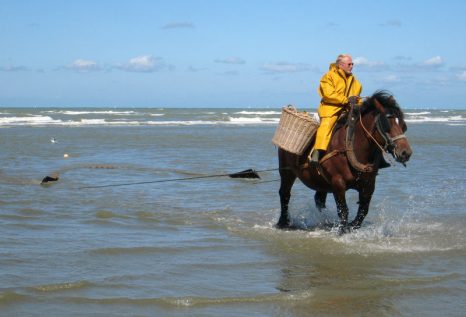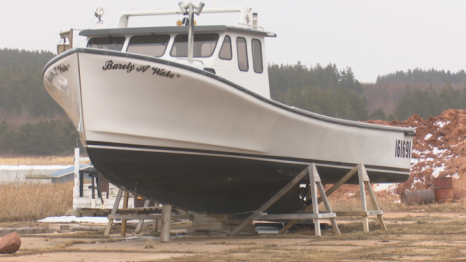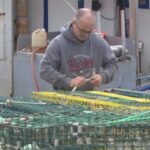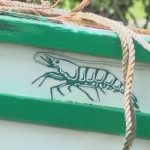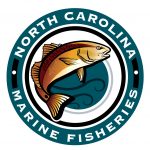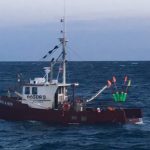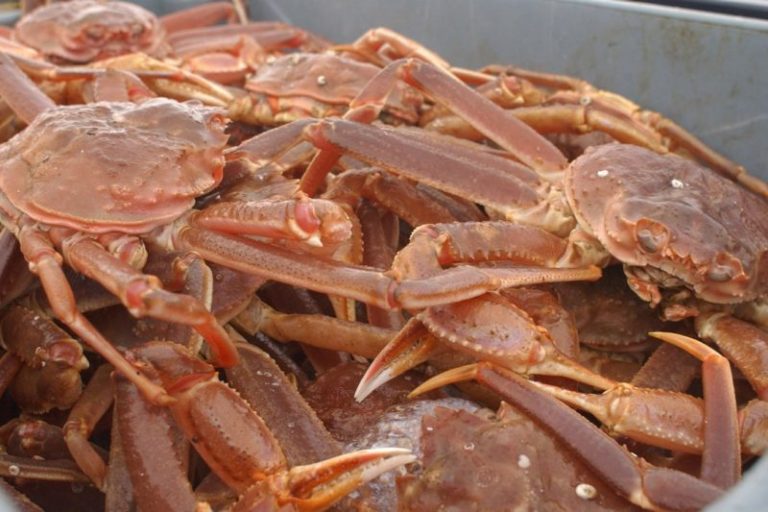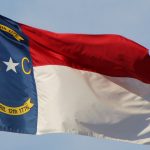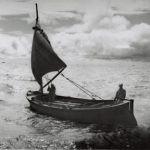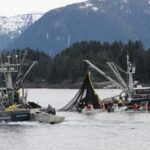Monthly Archives: March 2018

Opponents of ultra-deep BP wells off N.S. coast speaking at SMU
Eight years ago on an April evening, BP’s Deepwater Horizon drilling platform in the Gulf of Mexico exploded, killing 11 workers, injuring 17 more and leaking nearly five million barrels of oil into the ocean off the U.S. coast. The wellhead blowout — a combination of human error and mechanical and design insufficiencies — caused the largest oil spill in history, cost billions of dollars to mitigate, and some experts say resulted in irreparable damage to the surrounding ecosystem. With BP now approved to drill up to seven deepwater exploration wells off the coast of Nova Scotia, some are wondering if the province is at risk of its own Deepwater disaster.>click to read<11:54
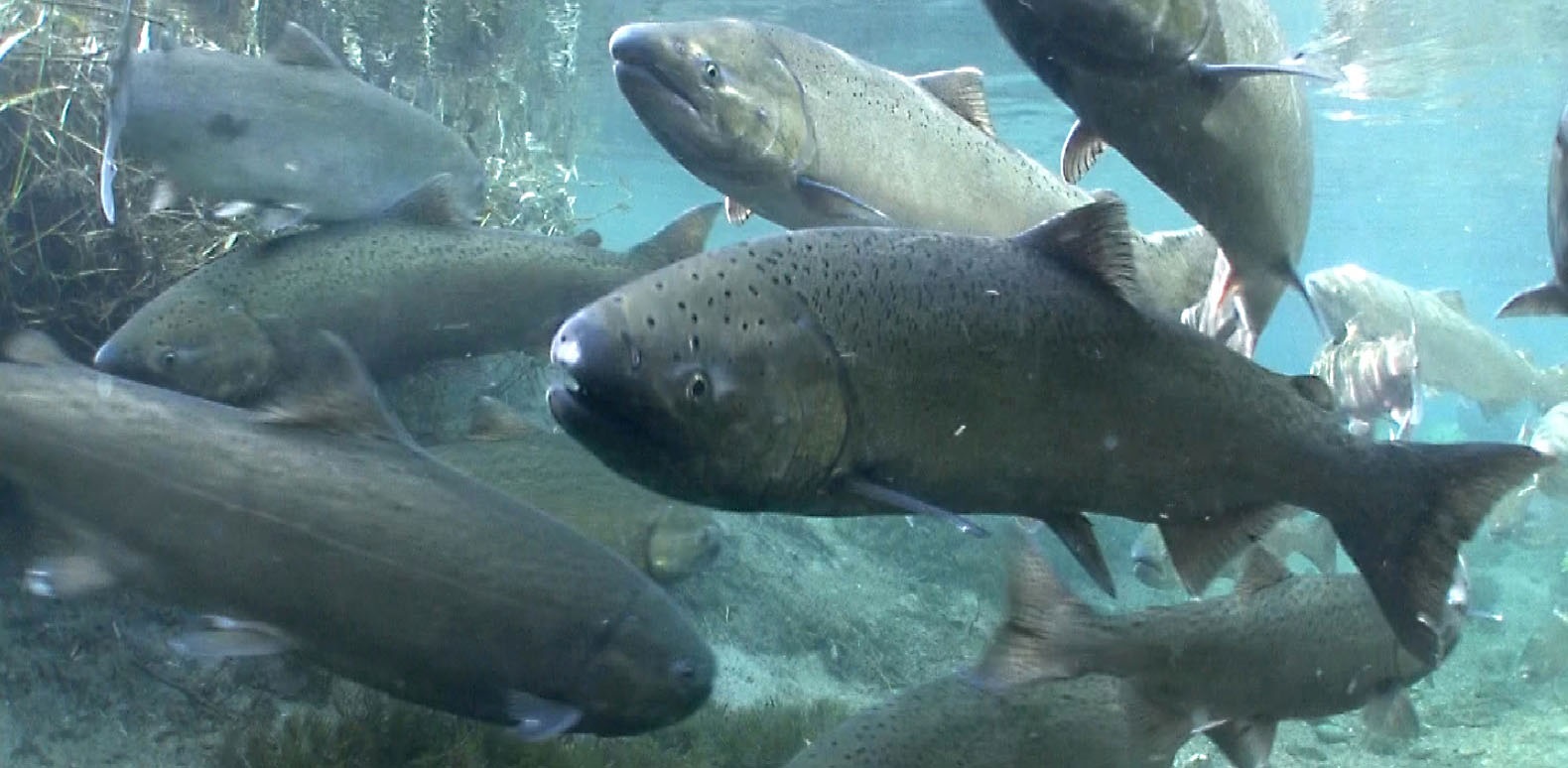
California’s Salmon Industry Set to Take Another Hit
Fisheries managers will impose the toughest restrictions on California’s salmon harvest in nearly a decade, hobbling the billion-dollar industry that depends on it. This year’s fall salmon run is estimated to be only a quarter of normal on California’s Sacramento River, due mostly to drought conditions and warmer ocean temperatures. As a result, officials at the Pacific Fishery Management Council last week moved to cut the commercial season by as much as a third of its standard length. >click to read< 10:42
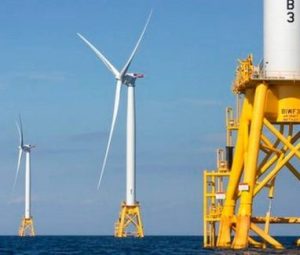
Opponents say Block Island wind farm is causing problems across prime fishing grounds
The five enormous turbines that have been generating electricity off Block Island over the past year are considered a model for the future of offshore wind. But the nation’s first ocean-based wind farm also has exposed what fishermen say are serious threats to them caused by scattering massive metal shafts and snaking underwater cables across prime fishing grounds.,,, Wind power companies have dismissed most of their concerns, and fishermen have become increasingly frustrated, saying that they’re being ignored.>click to read<09:38
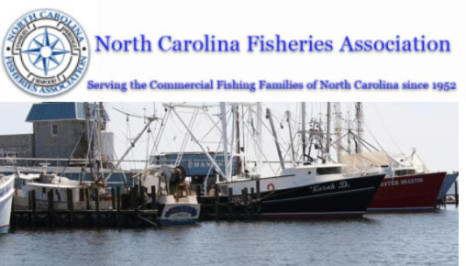
North Carolina Fisheries Association Weekly Update for March 16, 2018
>Click here to read the Weekly Update<, to read all the updates >Click here<, for older updates listed as NCFA >click here< 21:06
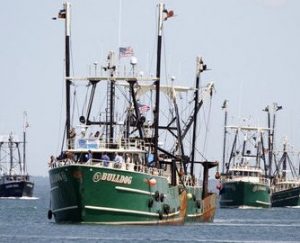
EDF tells NOAA Get multiple buyers for Carlos Rafaels assets, more monitoring
Jim Kendall chuckled as he attempted to grasp the words to describe a letter crafted by Environmental Defense Fund, which it sent to NOAA.,,, The letter pitches two strategies to NOAA in handling the permits and punishment linked to Rafael,,, EDF suggests that NOAA should require multiple buyers of Rafael’s assets and require monitoring of his vessels while also establishing funding for the monitoring. >click to read< 18:41
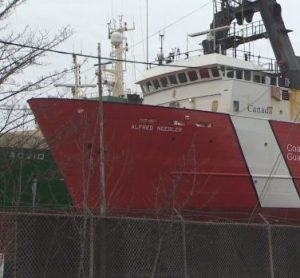
Aging coast guard ships stuck in refits put crucial Georges Bank fisheries survey at risk
Once again, Canada’s fleet of coast guard vessels is showing its age. A federal fisheries science survey on Georges Bank is delayed this winter because the Canadian Coast Guard vessel normally tasked with the job is out of commission on an extended refit, CBC News has learned. And a second coast guard ship expected to take over the job is also unavailable because it, too, is undergoing a refit that had to be extended. The five-week Department of Fisheries and Oceans survey off southern Nova Scotia usually starts mid-February aboard the Canadian Coast Guard Ship Alfred Needler, but the 36-year-old vessel is high and dry these days in a St. John’s shipyard. >click to read< 09:40
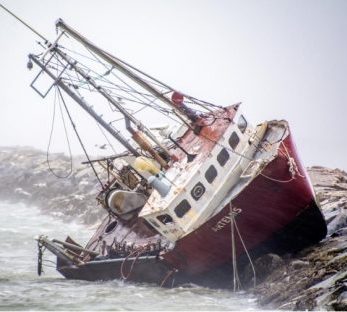
Derelict dragger makes waves in town
The rusty 42-foot dragger, Artemis, arrived in the harbor in July and even nor’easter Riley couldn’t quite get rid of it. The Artemis, a red-hulled, defunct fishing vessel, broke free from a town mooring near MacMillan Pier at about 9 a.m. on Friday, March 2, at the start of the storm. Hurricane force winds and thrashing waves pushed the dragger westward until it lodged itself onto the rocks of the West End Breakwater. The boat, owned by John Christiansen of Yarmouth, had not been actively used for commercial fishing recently, and was stripped of all gear and fuel. (she’s still there!) >click to read< 09:00 
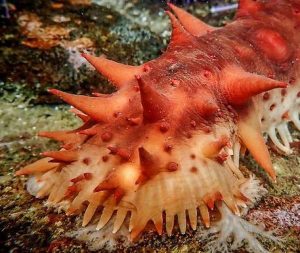
The Whale Pass Case: Southeast Alaska fishermen illegally caught $35,000 worth of sea cucumbers, troopers say
The lure of lucrative echinoderms may have proved too strong for three Southeast fishermen. The trio, all from Naukati Bay on Prince of Wales Island, face criminal charges after pilfering nearly four tons of sea cucumbers from a Whale Pass scientific preserve that’s been off limits to fishing for decades, Alaska Wildlife Troopers say.,, The Whale Pass case started in December after other divers noticed the three men bringing in large loads of sea cucumbers,,, “They’re like, how in the world is this guy catching more than us? We don’t even see him out here. Something isn’t right,” >click to read< 20:06
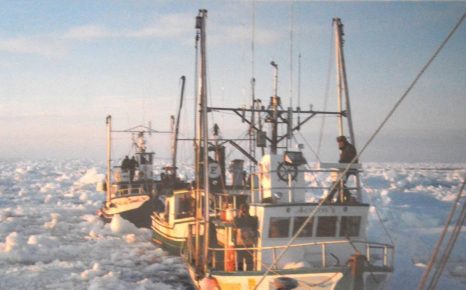
Northern ice becoming more dangerous, says sealer stuck 23 days in frozen expanse
The memory of 23 long, cold and uncertain days trapped in the Atlantic ice is never far from the recollection of fisherman and sealer Dave Patey. The 59-year-old St. Anthony Bight resident has hunted seals since he was a boy. Growing up on Newfoundland’s Northern Peninsula, he spent many spring days of his youth getting out of school and jumping aboard a boat with his father and uncle to take part in the hunt. >click to read< with links to a five part series. 17:26
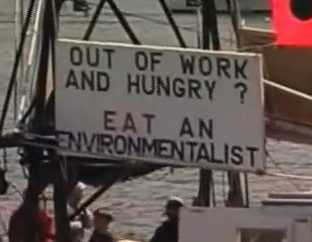
Lawsuit Challenges Trump Administration’s Failure to Protect Pacific Humpback Whales Threatened by Fishing Gear, Ship Strikes, Oil Spills
The Center for Biological Diversity, Turtle Island Restoration Network and Wishtoyo Foundation today sued the Trump administration for failing to protect humpback whale habitat in the Pacific Ocean, where the animals face threats from fisheries, ship strikes and oil spills. Today’s lawsuit, filed in federal district court in San Francisco, aims to force the National Marine Fisheries Service to follow the Endangered Species Act’s requirement to designate critical habitat within one year of listing a species as threatened or endangered and not authorize actions that,,, >click to read< 16:12
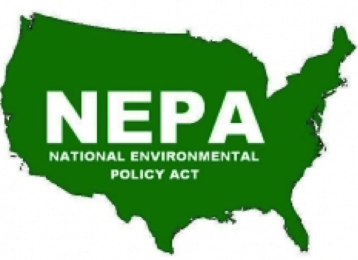
NEPA: Taming The Environmental Beast That Was Meant To Be A Watchdog
What was first proposed by Congress as a modest law to assess the environmental impact of highway construction and other publicly owned projects, has grown into a bureaucratic monster, the likes of which no one ever imagined. Nearly a half-century ago, before major federal environmental laws existed, Congress wanted to ensure that all federal agencies consider the environmental impact of their actions. This well intended action led to passage of the National Environmental Policy Act (NEPA). However Congress didn’t envision how a seemingly modest watchdog law would become the regulatory monster that it is today. >click to read< 14:49

Woman raped by Fish & Wildlife official: ‘I used to be so happy’
When Thurston County Superior Court Judge James Dixon sentenced ex-Department of Fish and Wildlife official Greg Schirato to the maximum sentence for breaking into a colleague’s home and raping her in her sleep, the woman he attacked burst into sobs, a smile breaking through. “I believe Mr. Schirato is a predator,” Dixon said, handing down a sentence of about 10 years to life in prison. “I believe this community needs to be protected from Mr. Schirato. I believe our community has a right to be heard, I believe (the victim) has a right to be heard.” >click to read<14:30
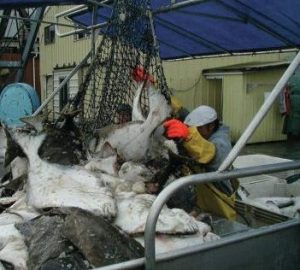
Halibut fishery poised to open as NMFS works on 2018 catch limits
Alaska’s halibut fishery is set to open this month, but the final quota was still not completely set as of March 14, even as fishermen began to receive permits in the mail. Indications, however, are that the quota will decrease this year compared to last. Under regulations published by the National Marine Fisheries Service this month, the fishery will open March 24 and run through Nov. 7. But the total catch limits remain unknown. That’s because this year, for just the second time in the commission’s history that dates to its creation by a 1923 treaty, the International Pacific Halibut Commission could not come to an agreement about the 2018 catch limits at its annual meeting. >click to read<12:36
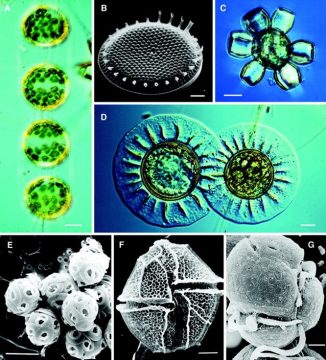
The phytoplankton decline, is there anything to it?
We have been told that the phytoplankton population is declining rapidly around the world and, of course, the cause is climate change. Phytoplankton is the base of the ocean food chain and it accounts for about half of global primary productivity or organic matter creation (Boyce, Lewis and Worm 2010). Phytoplankton is the major consumer of carbon dioxide, the dreaded demon trace gas, and the major producer of oxygen. So, first question, is the estimated decline in phytoplankton accurate, significant or unusual? Second question, if the decline is real, are the measurements long term enough to show it is not a natural occurrence? What is the natural variability and how do we know man-made climate change is to blame? Let’s investigate this. >click to read< 12:10

Coast Guard rescues 3, searching for missing boater 70 miles south west of Fort Myers Beach
The Coast Guard is searching for a 63-year-old man in the Gulf of Mexico after a fishing boat sank 70 miles south west of Fort Myers Beach. Searching for Dennis Grim, 63. Rescued were James Beeman, Anthony Bertolino, Darren Whalen. At 3:59 a.m. Sector St. Petersburg watchstanders received a distress call via VHF-FM marine band radio channel 16 from Beeman, the captain aboard the 37-foot commercial fishing boat, J.U.M.A., out of Seminole. Beeman reported the boat was taking on water and he needed emergency assistance. >click to read< 10:17
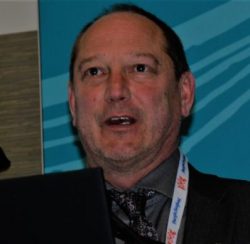
US fisheries’ leader Oliver asserts ‘business-minded’ stance
The US’ top regulatory authority on fishing used his first appearance ever at a Seafood Expo North America (SENA) conference on Sunday to describe how he was reshaping the mission at the National Oceanic and Atmospheric Administration (NOAA) to create more of a pro-business environment. Commercial fishermen largely applauded the Donald Trump administration’s selection of Chris Oliver to serve as NOAA’s assistant administrator of fisheries in June 2017. >click to read< 09:41
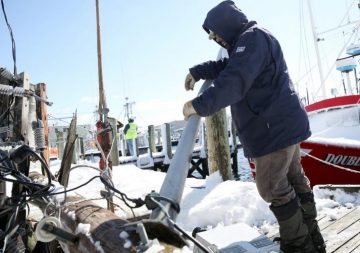
Fairhaven fire crew rescues fisherman, extinguishes fire
Fire Department rescuers saved a lobster fisherman from downed power lines at Union Wharf during Tuesday’s powerful nor’easter and later extinguished the resulting fire. At 7:38 p.m., the firefighters received a report of power lines down with a lobster fisherman trapped on his boat at Union Wharf, according to Deputy Fire Chief Todd Corriea. An utility pole cracked in half at the end of Union Wharf, likely from the combination of strong winds and heavy wet snow, Correia said. >click to read< 09:24
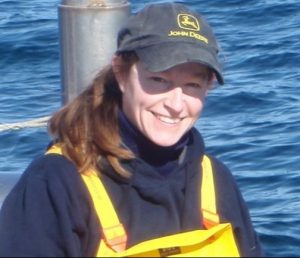
Fisheries scientist takes the spotlight in Fishing Heritage Center’s ‘A Day in the Life’ series
The New Bedford Fishing Heritage Center’s A Day in the Life speaker series continues tonight, March 15, with SMAST fisheries scientist Crista Bank. Beginning at 7 p.m., Bank will share her story and discuss the cooperative research she is currently conducting with the commercial fishing industry. Admission to A Day in the Life is free for Fishing Heritage Center members, and $5 for non-members. The Center is handicap accessible through the parking lot entrance. Free off-street parking available. >click to read<22:33
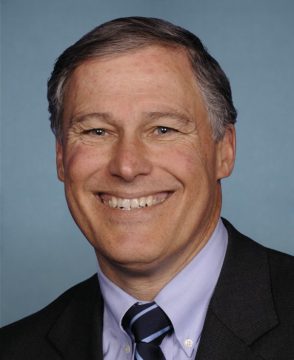
New Washington directive aims to help endangered orcas
With the number of endangered Puget Sound orcas at a 30-year low, Washington Gov. Jay Inslee on Wednesday signed an executive order directing state agencies to take immediate and longer-term steps to protect the struggling whales. The fish-eating mammals, also known as killer whales, that spend time in Puget Sound have struggled for years because of lack of food, pollution, noise and disturbances from vessel traffic. There are now just 76, down from 98 in 1995. Inslee said the orcas are in trouble and called on everyone in the state to do their part. >click to read<20:49
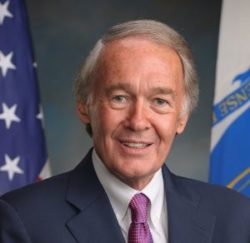
Sam Parisi sends an update on Senator Markey and S1322, the American Fisheries Advisory Committee Act
Dear Readers I am pleased to let you know that thanks to your efforts I have received a call from the Senators aid, Kate Machate, regarding Senator Sullivan’s Bill, S1322 regarding the American Fisheries Advisory Committee Act. She relayed Senator Markey’s concern that Massachusetts would be left out. So I called Sullivan office and was told that is not true and that Markey had a problem with sport fisherman being on the Advisory Panel. >click to read< 18:49
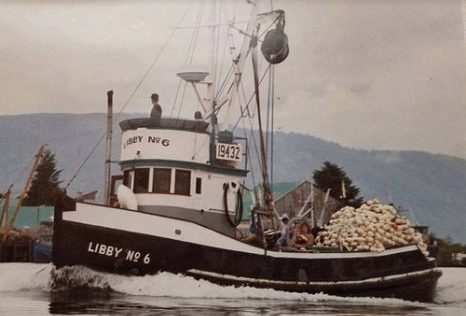
Then and Now: Craig cannery
Just about every town in Southeast Alaska has a cannery. Some have several. I don’t know if its true or not but I heard that at one time Ketchikan had 17. For generations, the Craig cannery was like a vital organ, the heartbeat of town and the primary source of livelihood and activity. Craig woke up each spring with the cannery, and went into hibernation each fall when the purse-seining season was over. I’m a commercial fisherman(Ralph Mackie). My deckhand, who graduated from high school last May, wouldn’t describe the cannery that way at all. >click to read< 17:21
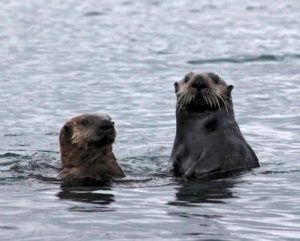
Sea otter resolution gets first hearing in Senate committee, asking Congress to amend the Marine Mammal Protection Act
A Senate committee Monday, March 12 heard from supporters and opponents of state involvement in the management of sea otters in Southeast Alaska. The Senate Resources committee held its first hearing on Senate joint resolution 13, which calls on the federal government to allow the state or a Native organization to co-manage the rebounding marine mammals and seek ways to increase harvest of otters. >click to read< 14:53
State seeks federal exemption to manage sea otters – The Legislature is considering two resolutions, one in the House and one in the Senate, asking Congress to amend the Marine Mammal Protection Act and,,, >click to read<
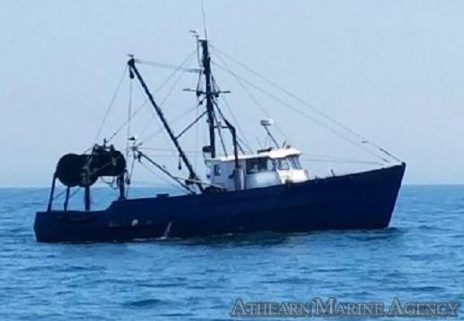
Athearn Marine Agency Boat of the Week: 58′ Steel Stern Trawler, 6 Cylinder Cat 343, Lugger – 8KW Generator, Permits
Specifications, information and 4 photos >click here< To see all the boats in this series, >Click here< 13:01
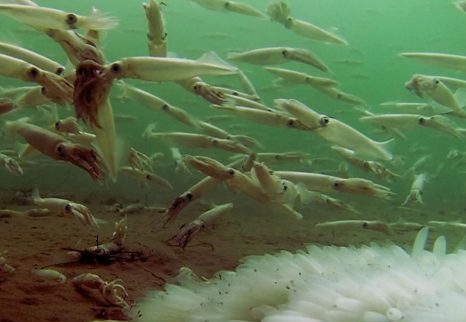
As Alaskan Waters Warm, Market Squid Extend Their Reach Northward
Market squid could represent an economic lifeline here, and it’s one that Alaskan fishermen are eager to begin experimenting with.,,, Though scientists haven’t yet nailed down the cause, populations of valuable species like king salmon and Pacific grey cod, Schramek says, have fallen to as little as one-tenth of even their 2015 levels. With those populations at historic lows, the Alaska Department of Fish and Game now bans their catch during parts of their historical fishing season. The bright spot, however, is a small, color-changing squid.>click to read<12:26
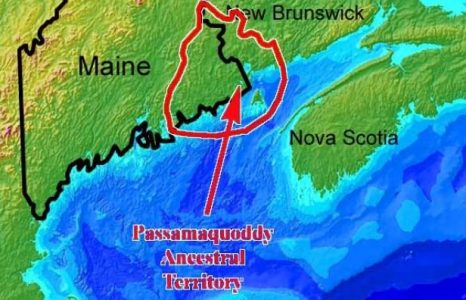
N.B. First Nation seeking access to fishery has international implications
Another Indigenous fishery is in the works in the Maritimes — and this one has international implications. Fishing rights are one of the big prizes for the tiny Passamaquoddy First Nation in southern New Brunswick as it negotiates “status” recognition with the government of Canada. With that recognition, the Indigenous community, which also refers to itself as Peskotomuhkati, would qualify for fishery access accorded to other status First Nations in the region. There are about 350 members in the Passamaquoddy Schoodic Band in Canada. However, the Passamaquoddy homeland straddles the New Brunswick-Maine border. >click to read< 11:48
We’re back after a loss of internet access due to the storm.
We’ve been offline since around 16:46, 3/13/2018 due to the storm, which shut down our internet access. This is the longest delay we’ve experienced in our seven years of continuing to update. We’ve been experiencing random interruptions in service, and we know we’re not alone! We hope everyone gets their services restored soon, and we can all get back to normal! Cheers, and have a great day! 11:41

A conversation with Patrick Moore
Patrick Moore is a Canadian activist, and former president of Greenpeace Canada. Since leaving Greenpeace, which he helped to found, Moore has criticized the environmental movement for what he sees as scare tactics and disinformation, saying that the environmental movement “abandoned science and logic in favor of emotion and sensationalism.” He has sharply and publicly differed with many policies of major environmental groups, including Greenpeace itself on other issues including forestry, biotechnology, aquaculture, and the use of chemicals for many applications. >click to read< 14:31
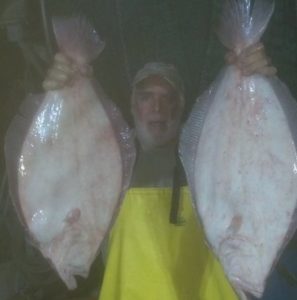
The US Senate needs to support the AMERICAN FISHERIES ADVISORY COMMITTEE ACT, S1322
To all, My name is Joel Hovanesian and I am a commercial fisherman who resides in RI but have held a CT. licence for some 30 years. I have a small inshore vessel now after selling my offshore boat in 2010. I have been dealing with Mike Gambardella since he started in the Borough. I want to bring an issue forward and give insight to some thoughts. I have been an outspoken critic of the way we have been managing our fisheries here in New England and other places on the Eastern Seaboard. We all recognize the fact that regulations need to be in place for obvious reasons, however as often happens when the Federal Government gets involved with things, they have a tendency to take on a life of their own. >click to read<13:36






